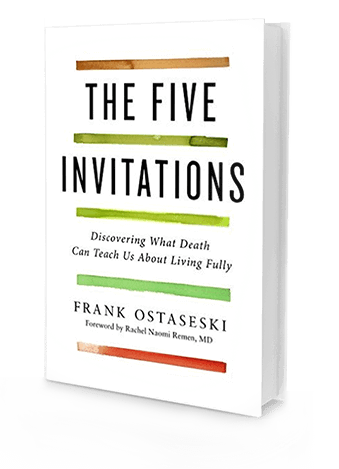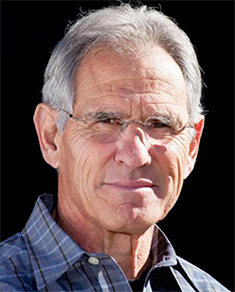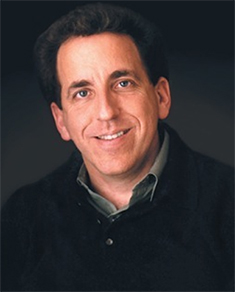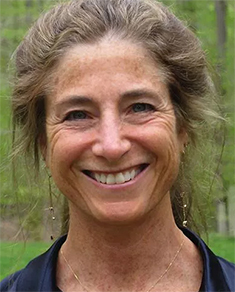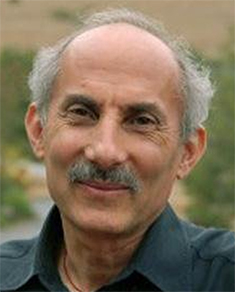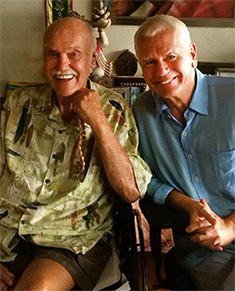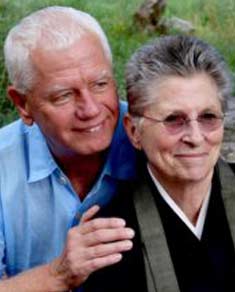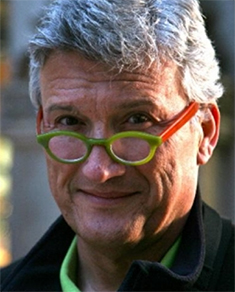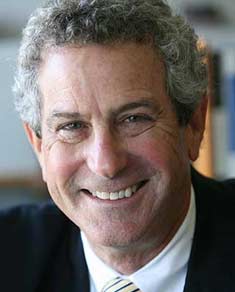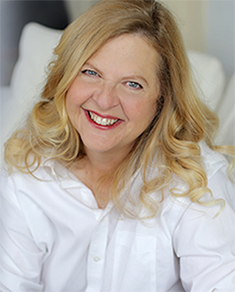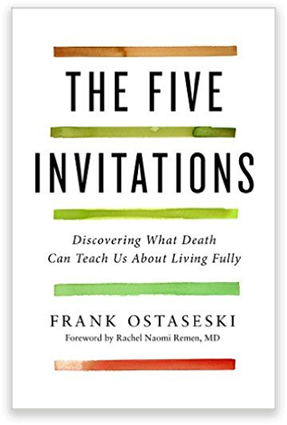BOOK EXCEPRT
From Chapter 11:
Hearing the Cries of the World
I love romance, and so did Catherine. One night when we were watching Pretty Woman on TV at the hospice, she made an announcement. She probably had only six weeks to live, but she wanted to get married to her sweetheart. She asked me if I would perform the ceremony.
“Sure, I would be honored,” I said. “But what you really need is a wedding coordinator, and lucky for you, I’m really good at that. You know, there are a lot of details to plan for a wedding.”
So every day, I would come into her room, and we would talk about the wedding. I would ask her questions about every aspect of getting married: The guy she was marrying, why did she love him? Did she have any concerns about their compatibility? Were they going to write their own vows or not? What kind of cake did she want? Did she want to be in a wheelchair or in bed for the ser vice? What dress would she wear? All the while, I was aware that there was more happening in these conversations than bridal details.
One day, in the middle of deciding what to do about the cake, Catherine broke into tears and blurted out, “I just want my mother to be here.”
Catherine’s mother had been dead for six years, but that was what mattered most to Catherine in the moment. Not her cancer or even the fact that she was dying. It was that her mother wouldn’t be there to witness her wedding. That was the face of her suffering. I might have missed it or offered a cliché “Oh yeah, wouldn’t that have been nice.” Instead, we went right to the heart of the issue, exploring how we might bring her mother’s presence into the wedding.
“We could have pictutres of her there,” Catherine off ered.
“Great idea,” I replied. “And, if she were there, what would you have wanted her to say on your wedding day?”
Catherine thought about it, then asked shyly, “I would have loved for her to read aloud the poem she wrote me before she died. Would you read it?”
“With all my heart,” I replied.
When our non- judgmental attention responds to exactly what hurts in another, the heart opens. It feels cared for and seen. Compassion is cognizant of the spectrum of considerations, but attuned to what matters most in this moment. Sometimes that attunement is so intimate that we may feel ourselves engaged in a “soul- to- soul” meeting with the other.
Both Steven and Rick were living with AIDS a few rooms apart from each other at the Zen Hospice Proj ect. Rick, in addition to his HIV diagnosis, had suffered a stroke that had para lyzed his right side, leaving him with aphasia that made his speech garbled and unclear. He was quite angry with his condition, prickly with most people. This, combined with his inability to communicate, caused him to become isolated.
Steven, on the other hand, was open and radiant in his demeanor. When you entered his room, you felt like you were walking into a sanctuary. Steven had done his homework, the inner journey of facing his demons. Now there was a great sense of peacefulness and gratitude present in him.
One day, I explained to Rick that Steven was coming close to the end of his life. Rick deci ded to say good- bye. I helped him limp down the hallway to Steven’s room, where Rick sat on the edge of the bed. I sat in the corner, not wanting to interfere.
For the next twenty minutes, I watched the most incredible unfolding: the two men entered into a profound silent exchange. No words were spoken, but their eyes never left one another’s faces. At the end, Rick nodded, and Steven said, “Yes, thanks, that was wonderful.” They hugged, and then Rick returned to his room. Steven died later that night.
Rick had shown up with his fear and darkness. He knew he was staring at his own destiny. He, too, would die within a matter of weeks, and that scared him. But because Steven had opened to his own suffering, he could be with Rick’s fear without adding more fear. Steven looked at Rick with such unbelievable love and compassion. It was a soul connection
that, at least in that moment, provided Rick with a healing salve.
A misconception many people hold about compassion is that we should help the other person to feel safe, that there is no danger. This is fine, of course, if you can do it. But I work with people who are dying, and for many, dying does not feel safe.
I have found that when I am really pres ent, sitting in my own seat, so to speak, and grounded in compassion, the other person begins to trust and open up— not because there is no danger, but because they feel that they are not alone. Genuine understanding and compassionate companionship offer them the support and encouragement they need in order to go toward what feels dangerous.
When speaking about compassion, I always feel like I should put a warning label on the bottle. It’s impor tant for caregivers or those working with suffering to understand something about the presence of compassion. When compassion is truly pres ent in the room, a great deal of pain and suffering are likely to show up in response. That is because the pain wants to expose itself to the healing agent of loving kindness.
When speaking about compassion, I always feel like I should put a warning label on the bottle. It’s impor tant for caregivers or those working with suff ering to understand something about the presence of compassion. When compassion is truly present in the room, a great deal of pain and suffering are likely to show up in response. That is because the pain wants to expose itself to the healing agent of loving kindness.
Years ago, I was invited by the Zen teacher Bernie Glassman Roshi to help lead a multi- faith “bearing witness” retreat at the former Nazi death camps of Auschwitz- Birkenau. The idea was to immerse ourselves in an environment so unsettling that we had no choice but to drop our habitual ways of thinking. Bernie wrote:
“When you bear witness to Auschwitz, at that moment there is no separation between us and the people who killed. We ourselves, as individuals, with our identities and ego structure, disappear and we become the terrified people getting off the trains, the indifferent or brutal guards, the snarling dogs, the doctor who points right or left, the smoke and ash belching from the chimneys. When we bear witness to Auschwitz, we are nothing but all the ele ments of Auschwitz. It is not an act of will, it is an act of letting go. What we let go of is the concept of the person we think we are.”
Every day, we sat along the train tracks at Birkenau, meditating, praying, and chanting the names of the dead. We also met daily in small groups to talk about what we were experiencing. The group I facilitated included a woman who told me she had been a child in the camps, as well as the sons and daughters of former prisoners and Nazi soldiers.Feeling restless one night, I deci ded to go into the camp at Birkenau and meditate in one of the children’s barracks. It was a long, grim building that had once been a horse barn. Shortly after I sat down, I heard someone enter the other end of the building. It was the woman from my group who said she had been a child prisoner in the camp. She began to cry and scream in the darkness.
I got up and sat beside her. And she kept wailing. I’d never heard such sounds. They were primitive, almost animallike. The wailing went on for most of the night. No words were spoken. There isn’t anything you can say when someone is experiencing such anguish. All you can do is bear witness. As light began to break, we returned to the hostel and silently hugged good- bye.
Later that day, I fl ew to Berlin to teach a workshop on grief and forgiveness. I didn’t mention my experience at Birkenau; it can still be difficult to speak of such things in Germany. As the workshop was ending a day or two later, however, a woman in the very back of the room stood up and said, “I’ve been listening to you talking about forgiveness, but my father was a prisoner in the concentration camps, and I can’t forgive his killers. My heart is like ice.”
The whole room went silent. Again, the only appropriate response was to bear witness.
Then another woman on the other side of the room raised her hand to speak. I thought to myself, Now the stories of the camps and the grief of those losses will come.
She stood and said, “My heart is like ice, too. It feels like a stone. My father was a Nazi offi cer who was a guard in the camps. I know that he killed people. I can’t forgive him.”
Silence.
Then these two women did the bravest thing I have ever seen. They made their way across the large conference hall of 200 people and embraced. They didn’t say a word. They didn’t have to. They just held each other. Their actions were a clear recognition that they were no longer alone in their pain. For that moment, their suffering was all of our suffering.
It’s easy to imagine that compassion requires some heroic strength that we do not possess. We may believe that we are not up to the task of meeting the suffering of the world. It can be helpful to consider the possibility that compassion is not a quality that we possess, but rather one that we access, inherent in the nature of real ity. Love has been here all along. It is absolute because every thing and every one always has been held in love.
